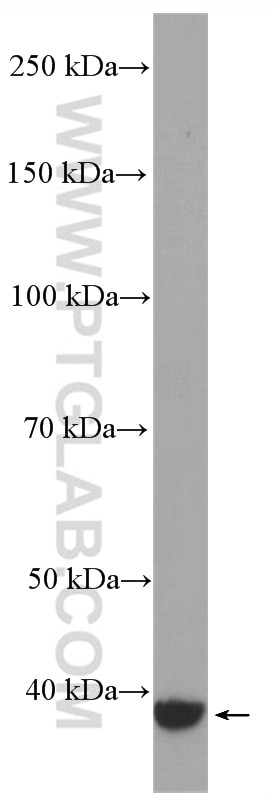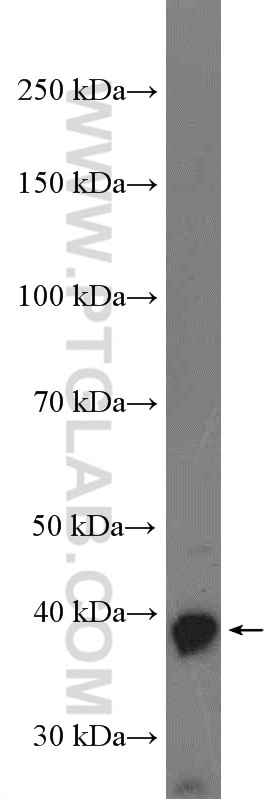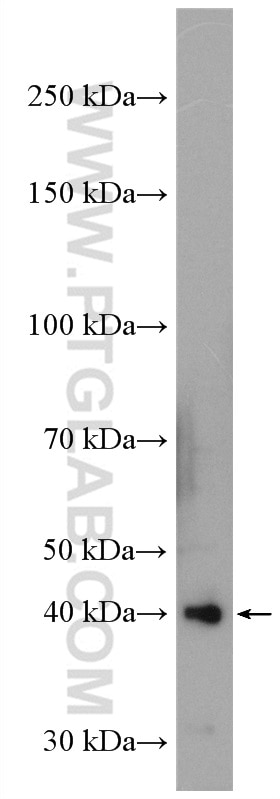Tested Applications
| Positive WB detected in | PC-12 cells, HepG2 cells, mouse brain tissue |
Recommended dilution
| Application | Dilution |
|---|---|
| Western Blot (WB) | WB : 1:1000-1:3000 |
| It is recommended that this reagent should be titrated in each testing system to obtain optimal results. | |
| Sample-dependent, Check data in validation data gallery. | |
Product Information
27264-1-AP targets GNAQ in WB, ELISA applications and shows reactivity with human, mouse samples.
| Tested Reactivity | human, mouse |
| Host / Isotype | Rabbit / IgG |
| Class | Polyclonal |
| Type | Antibody |
| Immunogen | GNAQ fusion protein Ag26170 Predict reactive species |
| Full Name | guanine nucleotide binding protein (G protein), q polypeptide |
| Calculated Molecular Weight | 42 kDa |
| Observed Molecular Weight | 38-40 kDa |
| GenBank Accession Number | BC057777 |
| Gene Symbol | GNAQ |
| Gene ID (NCBI) | 2776 |
| RRID | AB_2880822 |
| Conjugate | Unconjugated |
| Form | Liquid |
| Purification Method | Antigen affinity purification |
| UNIPROT ID | P50148 |
| Storage Buffer | PBS with 0.02% sodium azide and 50% glycerol, pH 7.3. |
| Storage Conditions | Store at -20°C. Stable for one year after shipment. Aliquoting is unnecessary for -20oC storage. 20ul sizes contain 0.1% BSA. |
Background Information
GNAQ is a proto-oncogene closely related to the α subunit of guanine nucleotide-binding proteins (G proteins) that serve as key intermediates between membrane-bound G-protein-coupled receptors (GPCRs) and GPCR signalling nodes. Aberrant expression and activity of G proteins and GPCRs are frequently associated with tumorigenesis. Recent studies show that oncogenic activating mutations in GNAQ are present in 80% of the melanomas. The calculated molecular weight of GNAQ is 42 kDa. This antibody can detect a band of 38-40 kDa in SDS-PAGE. (PMID: 33993733)
Protocols
| Product Specific Protocols | |
|---|---|
| WB protocol for GNAQ antibody 27264-1-AP | Download protocol |
| Standard Protocols | |
|---|---|
| Click here to view our Standard Protocols |







